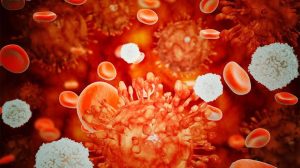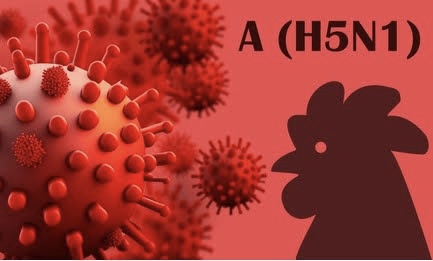Understanding Avian Influenza A(H5N1) Virus
 Avian influenza A(H5N1), also known as bird flu, is a type of virus that primarily affects birds but can be transmitted to humans through close contact with infected birds or contaminated environments. The virus is highly pathogenic, meaning it can cause severe disease and death in both birds and humans.
Avian influenza A(H5N1), also known as bird flu, is a type of virus that primarily affects birds but can be transmitted to humans through close contact with infected birds or contaminated environments. The virus is highly pathogenic, meaning it can cause severe disease and death in both birds and humans.
Causes and Transmission
The transmission of avian influenza A(H5N1) virus from birds to humans usually occurs through:
– Direct contact: Touching infected birds, their secretions, or excretions
– Contaminated environments: Coming into contact with environments contaminated with the virus, such as farms, live bird markets, or areas where infected birds have been
– Close proximity: Being in close proximity to infected birds or contaminated environments without proper protective gear
Symptoms in Humans
Symptoms of avian influenza A(H5N1) virus infection in humans can range from mild to severe and include:
– Fever
– Cough
– Sore throat
– Runny nose
– Muscle aches
– Eye infections (in some cases)
– Pneumonia (in severe cases)
Risk Assessment
The World Health Organization (WHO) assesses the risk of avian influenza A(H5N1) virus to the general population as low. However, individuals with occupational exposure to infected birds or contaminated environments, such as poultry farmers, veterinarians, and laboratory workers, are at a moderate to high risk of infection.
Prevention and Control Measures
To prevent the spread of avian influenza A(H5N1) virus, the following measures can be taken:
– Avoid contact: Avoid contact with live birds, especially those that appear sick or have died
– Wear protective gear: Wear personal protective equipment (PPE) such as masks, gloves, and eye protection when handling birds or contaminated environments
– Practice good hygiene: Wash hands frequently with soap and water, especially after handling birds or contaminated environments
– Cook poultry and eggs thoroughly: Cook poultry and eggs to an internal temperature of at least 165°F (74°C) to kill the virus
– Avoid unpasteurized milk: Avoid consuming unpasteurized milk, especially if it’s from infected dairy cows
Treatment and Vaccines
– Antiviral medications: Oseltamivir (Tamiflu) and zanamivir (Relenza) are effective against avian influenza A(H5N1) virus
– Vaccines: Several candidate vaccines are being developed, and some have shown promise in protecting against the virus. However, their availability is currently limited

